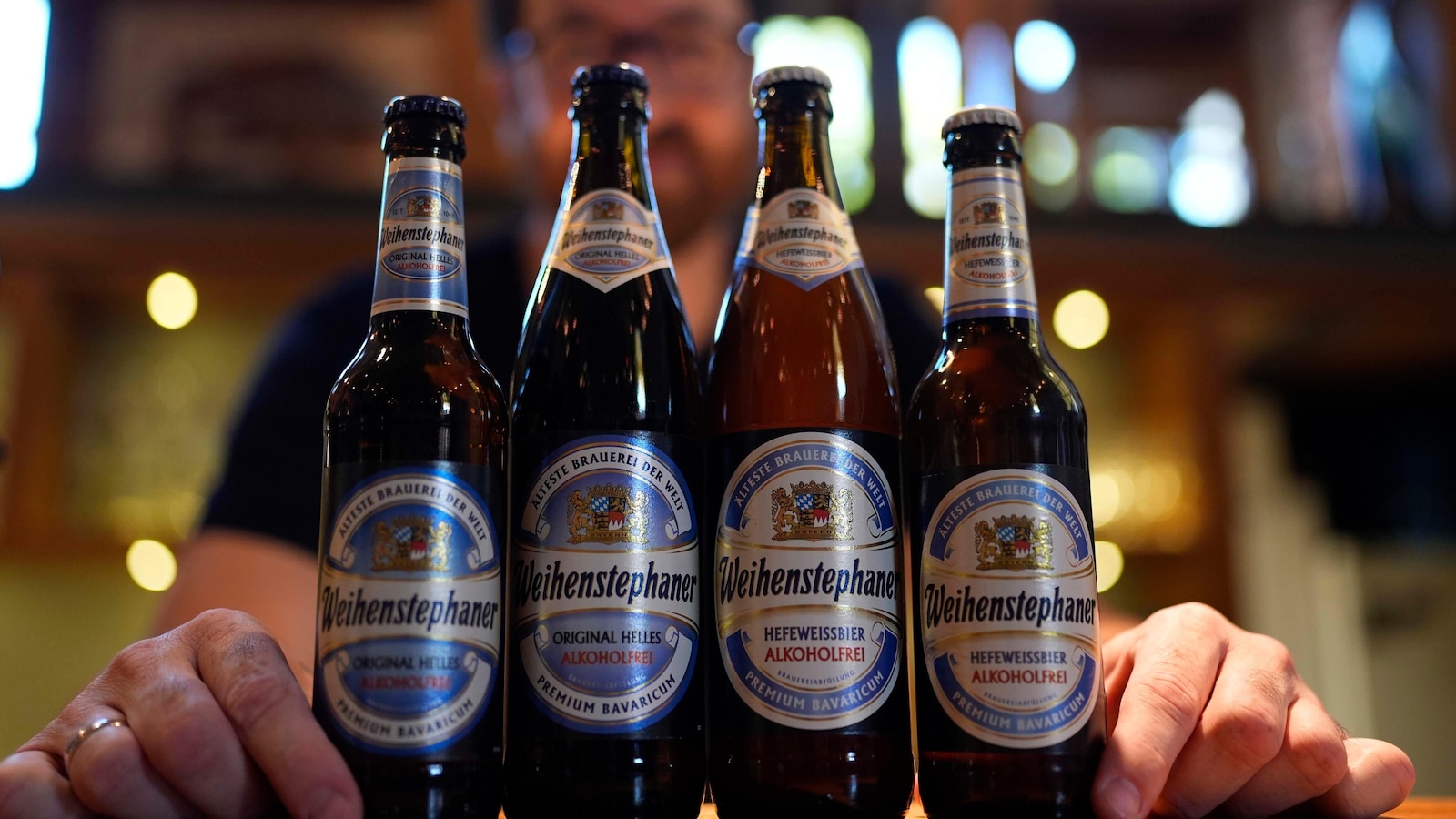World’s Oldest Brewery Embraces Alcohol-Free Beer
MUNICH — The head brewmaster for Weihenstephan, the world’s oldest brewery, has a secret: he really likes alcohol-free beer.
While he readily admits his preference for traditional brews, Tobias Zollo enjoys savoring alcohol-free beer during work or lunch. He credits the brewery’s unique alcohol evaporation process for preserving the familiar taste with fewer calories than a soda.
“You can’t drink beer every day – unfortunately,” Zollo joked last week at the Bavarian state brewery in Freising, Germany.
Zollo isn’t alone in his appreciation for the sober beverage. Alcohol-free beer has been gaining popularity in recent years as beer consumption declines.
At Weihenstephan, founded as a brewery in 1040 by Benedictine monks, non-alcoholic wheat beer and lager now account for 10% of production. This increase, since they started making alcohol-free drinks in the 1990s, mirrors trends within the German beer industry.
“Unfortunately, people are drinking less beer,” Zollo said Friday, the day before Oktoberfest officially began. “If we can offer a crisp and fresh taste of a typical Weihenstephan beer, just without alcohol, we want to make it available.”
Even at Oktoberfest, arguably the world’s most famous celebration of alcohol, alcohol-free beer is on the menu.
All but two of the 18 large tents at the festival offer the drink throughout the 16-day event. This sober beverage carries the same price tag as alcoholic beer – between 13.60 and 15.30 euros ($15.12 and $17.01) for a 1-liter mug – but spares drinkers from the hangover.
“For people who don’t like alcohol and want to enjoy Oktoberfest, it’s a good option,” Mikael Caselitz, 24, of Munich said Saturday inside one of the tents. “People sometimes think they have more fun with alcohol, which isn’t true. You can have just as much fun without it.”
He added, “If you want to come and drink alcohol-free beer, no one will judge you.”
This year marked the first time an alcohol-free beer garden opened in Munich. “Die Null,” meaning “the zero” in German, served non-alcoholic beer, mocktails, and other alcohol-free drinks near the city’s main train station this summer, but was scheduled to close a few days before Oktoberfest opened.
Walter König, managing director of the Society of Hop Research north of Munich, explains that researchers have had to breed special hop varieties for alcohol-free beer. Using traditional hops in alcohol-free beer results in a loss of distinct aroma during the brewing process.
However, customers are unconcerned about this, König said on Friday as he prepared for Oktoberfest.
“They only want to know that what they are tasting is as good as traditional beers with alcohol,” he said.

